Have you ever wondered why your cat is so obsessed with hunting and eating mice? It can be disconcerting when your furry friend comes home with a mouse in its mouth. In fact, cats are pure carnivores and mice provide them with important nutrients like taurine, but not all parts of the mouse are edible for cats.
In our article you will learn all about the hunting instinct of cats, the health risks of eating mice and how you can prevent your cat from bringing mice home.
The Hunting Instinct of Cats – Why They Eat Mice

Cats have an innate hunting instinct that is deeply embedded in their DNA. They descend from wild cats for whom hunting and eating mice was essential for survival. Even though they live as pets today, the urge to hunt is still strong. Eating mice is therefore a completely natural part of cats' behavior.
Mice are attractive prey for cats for several reasons:
- Their size and agility make them a perfect target for the cat's hunting instinct.
- Hunting provides a physical and mental challenge and keeps the cat fit and alert.
- The successful catch is a source of success and reinforces the cat's behavior.
Not only instinct, but also reward plays a role in eating mice. When a cat catches and eats a mouse, it not only gets a meal, but also a reward for its abilities . This strengthens its self-confidence and ensures that it continues to hunt. This keeps the cat's hunting instinct alive even today, when they are often kept as pets.
Health risks of eating mice
Cats are hunters by nature and eating mice is part of their instinctive behavior. However, this natural need can pose health risks. Mice can carry diseases such as toxoplasmosis and various types of worms that can be transmitted to cats.
Eating mice can also pose parasite risks for cats. Outdoor cats are particularly susceptible to parasites such as tapeworms or lungworms, which can be transmitted by eating mice. These parasites can cause symptoms such as diarrhea, vomiting or shortness of breath.
As a cat owner, it is important to be aware of the risks and to take preventative measures. This includes deworming the cat regularly and paying attention to symptoms of illness. Contact with potentially poisoned rodents should also be avoided.
Do cats eat mice whole or in part?

Cats often eat their prey whole, including mice. The reason for this is because mice contain important nutrients such as taurine, which are essential for the cat's health.
However, cats do not always eat all parts of the mouse. The acidic stomach of the mouse is often left out because cats do not like its taste. Shrews are also often shunned because of their unattractive smell and taste.
Are mouse bones dangerous for cats?
Mouse bones are not usually dangerous for cats. Cats have a digestive system that is designed to completely digest their prey, including the bones.
Indigestible parts such as hair are spit out by the cat in the form of hairballs. Choking hazards from mouse bones are rare for cats, as they dismember their prey properly.
Is it normal for cats to eat a lot of mice?
It is normal for cats to hunt and eat mice, especially outdoor cats. The number of mice caught can vary and depends on factors such as the availability of prey and the cat's hunting instinct.
Although eating mice is a natural behavior , the cat's eating behavior should be observed to detect health problems in time. Regular veterinary check-ups are recommended to ensure the cat's health.
How do I stop my cat from eating mice?
There are several things you can do to prevent your cat from eating mice. First, make sure your cat is fed high-quality food that is rich in animal proteins. This can help satisfy the hunting instinct, as the cat is already getting all the nutrients it needs. You should also schedule regular play times to exercise your cat's hunting instinct in a controlled environment. Here are a few ideas:
- Games with feather fishing rods or toy mice
- Use interactive toys that mentally challenge the cat
- Offer hiding and climbing toys to stimulate natural behavior
Another effective way to prevent mice eating is to give your cat plenty of activity and attention . A bored cat is more likely to look for entertainment outside - and that can include chasing mice. Provide regular interaction and make sure your cat gets enough play and exercise. This can reduce the desire to actually hunt. Here are a few more tips:
- Set up a secure outdoor area or balcony where the cat can observe the environment
- Spend time with your cat every day to strengthen the bond
- Keep the cat indoors, especially at dusk and night when mice are more active
My cat ate a mouse – what now?
If your cat has eaten a mouse, it's important to act quickly . You should first check for signs of poisoning in the mouse, such as unusual colors or smells. Watch your cat closely for any behavioral changes or symptoms of possible poisoning, such as vomiting or apathy.
In case of symptoms or uncertainty, the next step is to contact a veterinarian immediately. He or she can give you specific instructions and start treatment if necessary. Avoid giving the cat home remedies or making him or her vomit, as this could make the situation worse.
Flappie – The intelligent cat flap for a prey-free home
Imagine your cat coming back from a roaming trip, but instead of bringing unpleasant surprises, your home stays clean and free of prey thanks to Flappie . Flappie is a smart cat flap that is equipped with selective access control and a camera to detect if your cat has any prey. If so, the flap stays closed and your cat is gently reminded to leave their finds outside.
Frequently Asked Questions
Is it dangerous if my cat eats mice?
Yes, eating mice can pose health risks for cats. Mice can carry diseases such as toxoplasmosis and various types of worms that can be transmitted to cats. Eating mice can also pose a risk of parasites such as tapeworms or lungworms. It is important to deworm your cat regularly and watch for symptoms of illness to minimize these risks.
What do cats leave behind when they eat a mouse?
Cats often eat their prey whole, but they sometimes leave parts behind. The acidic stomach of the mouse is often not eaten because cats do not like its taste. In addition, shrews are often shunned because they have an unattractive smell and taste.
How many mice does a cat eat?
The number of mice eaten by a cat can vary and depends on factors such as the availability of prey and the cat's hunting instinct. It is normal for cats, especially outdoor cats, to hunt and eat mice. It is important to observe the cat's eating habits and to have regular veterinary check-ups to ensure its health.
Can cats eat mice?
Yes, cats can eat mice and it is a natural part of their behavior. Mice provide important nutrients such as taurine, which are essential for cats. However, cat owners should be aware of the health risks associated with eating mice and take appropriate precautions.
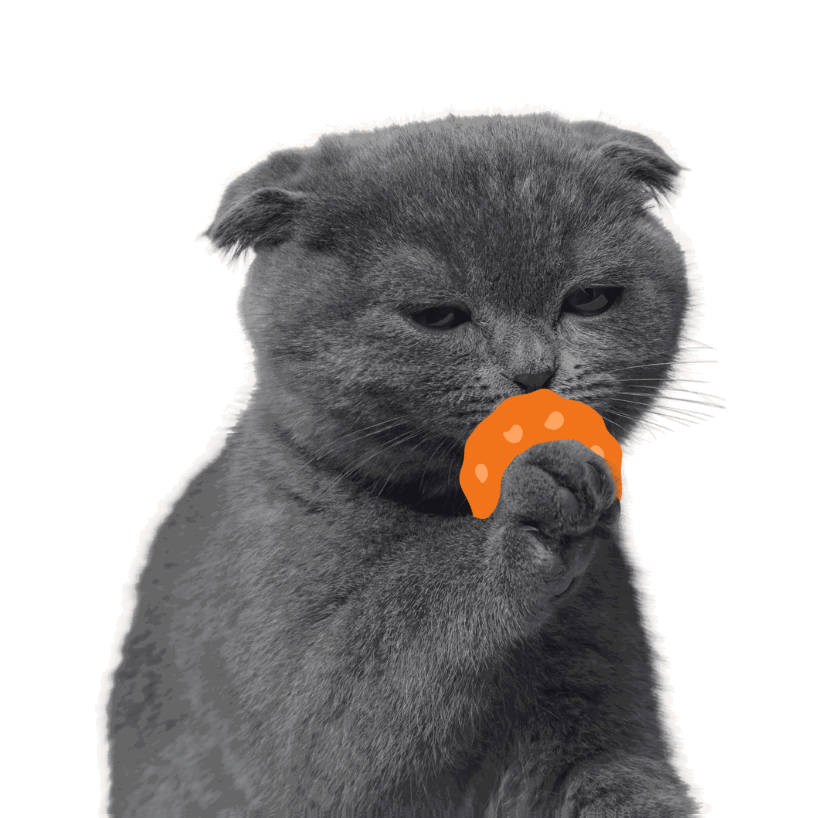
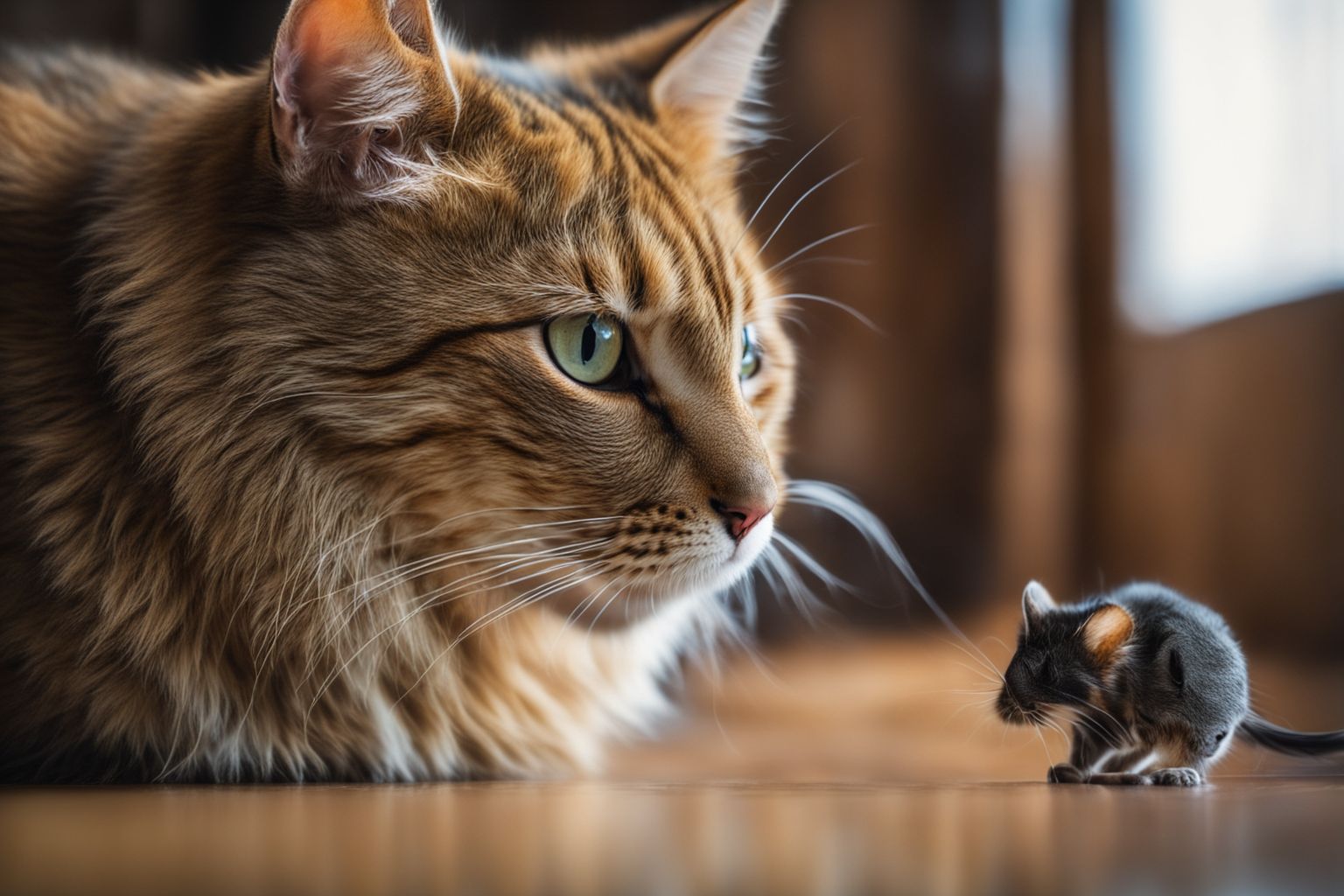
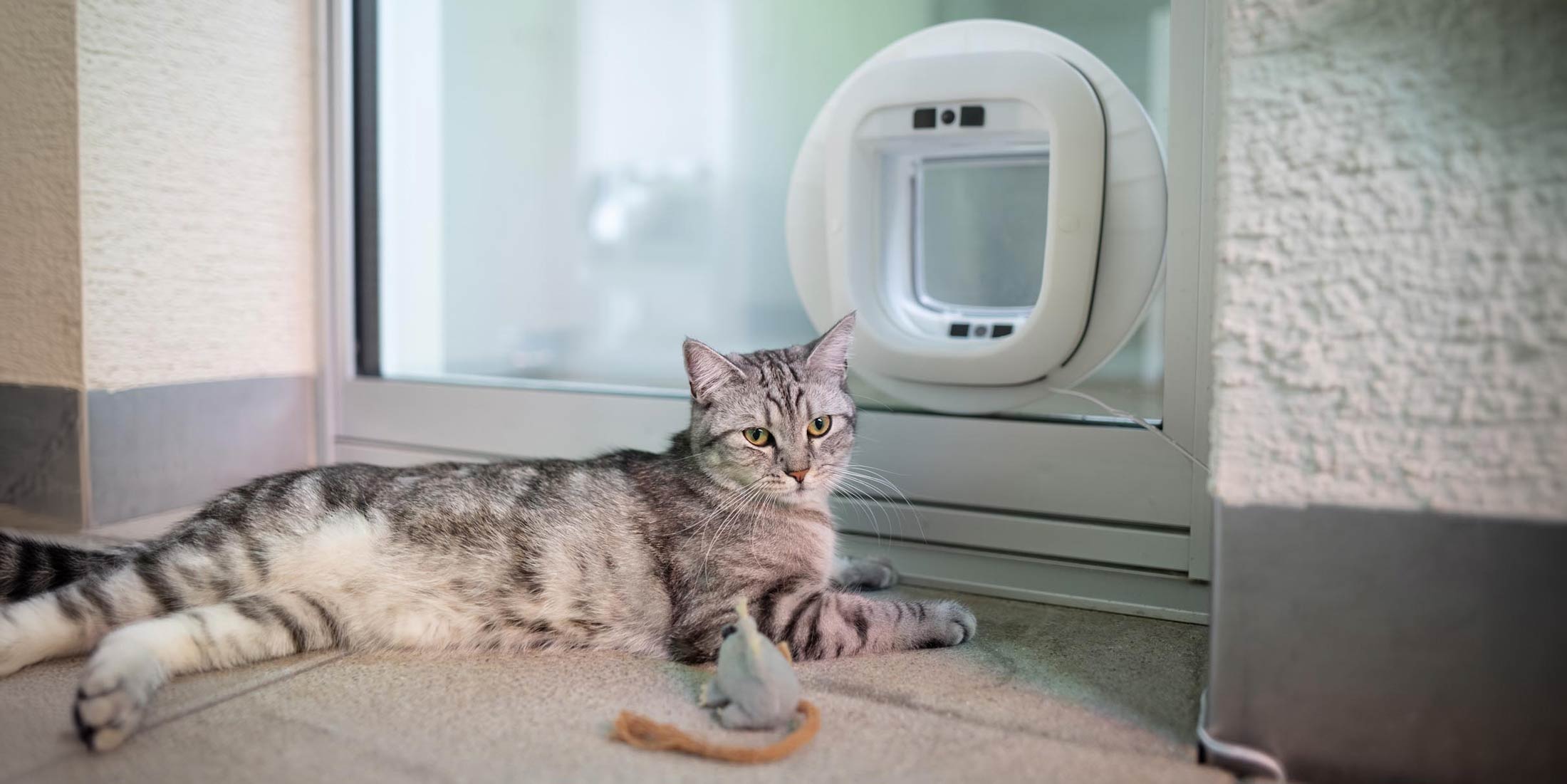
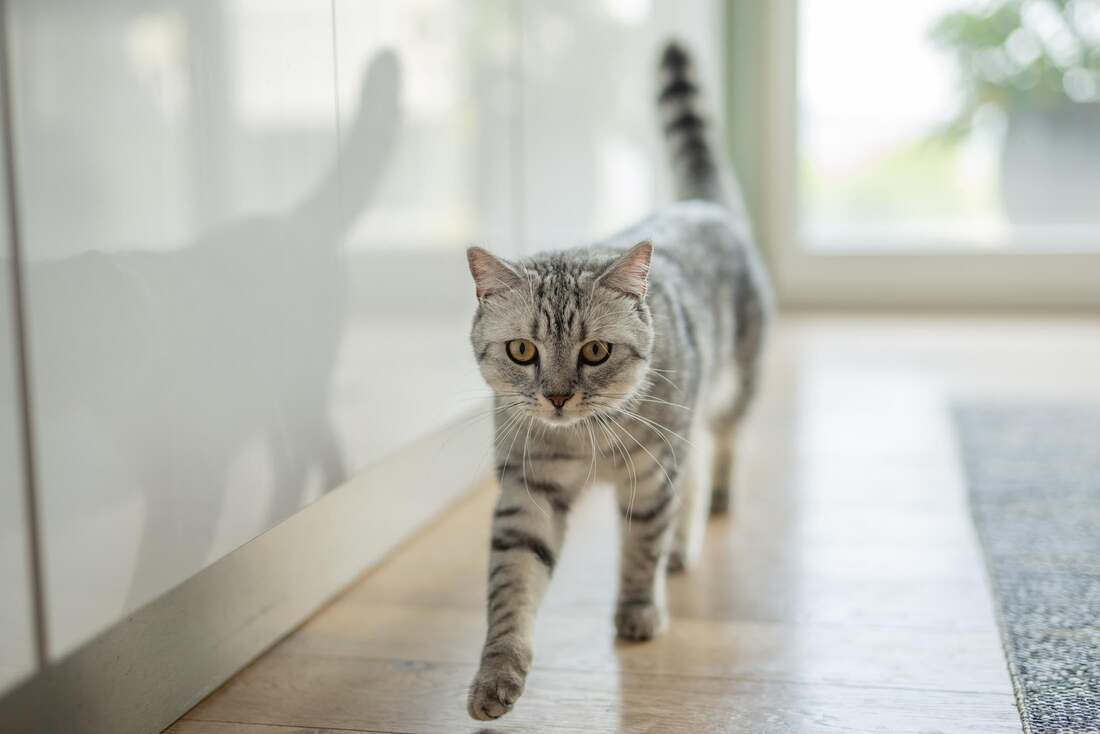
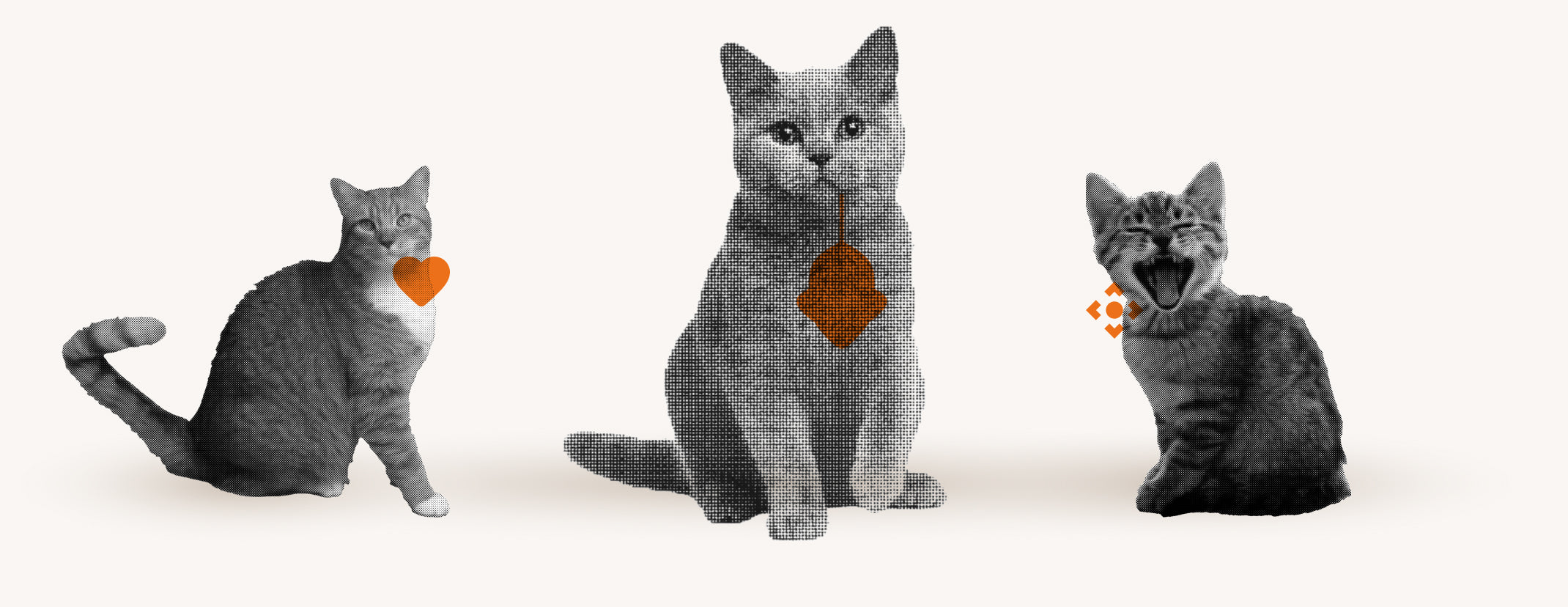
Share:
Why Cats Bring Their Mice Home
"Cat Hunting": Insight into its Hunting Behavior